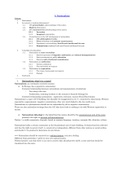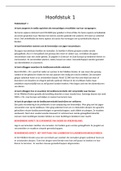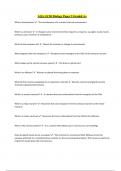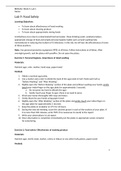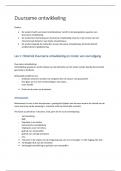Resume
Summary Notes: The Problem of Evil & Theodicies
- Cours
- Établissement
Concise notes on the Problem of Evil and Theodicies applicable to all exam boards A sufficient amount of scholars included and extra A* research included
[Montrer plus]Quelques exemples de cette série de questions pratiques
1.
Epicurus
Réponse: \\\'God either wishes to take away evils and is unable, or he is able and unwilling\\\'
2.
Mackie (Problem of Evil)
Réponse: \\\'God is omnipotent, God is wholly good, and yet evil exists\\\' David Hume: \\\'Is God willing to prevent evil, but not able? Then he is not omnipotent. Is he able, but not willing? Then he is malevolent\\\'
3.
Mackie (contradiction of omnipotence)
Réponse: \\\\\\\'Can an omnipotent being make things which he cannot subsequently control\\\\\\\'
4.
Paul Draper/ William Rowe:
Réponse: \\\\\\\'gratuitous evils\\\\\\\': unnecessary evils that do not contribute to the greater good
5.
John Holroyd (strength of the Evidential Problem of Evil)
Réponse: \\\\\\\'The strength of this argument as a challenge to belief in God, compared with the argument from the logical problem of evil, is that the burden of proof is lower here and the conclusion, therefore, more easily reached. It only has to seem likely that some instance of evil is pointless for belief in God to be less than reasonable.\\\\\\\'
6.
James Rachels (The Evidential Problem of Evil)
Réponse: \\\'The problem is that the world contains vastly more evil than is necessary for an appreciation of the good\\\'
7.
Genesis 1:31 (Theodicies)
Réponse: \\\'God saw all that he had made and it was very good\\\'
8.
John Hick
Réponse: \\\'Virtues that have been formed as a result of a person overcoming temptations are \\\'intrinsically more valuable than virtues created within her ready made without any effort on her own part\\\'

Les clients de Stuvia ont évalués plus de 700 000 résumés. C'est comme ça que vous savez que vous achetez les meilleurs documents.

Vous pouvez payer rapidement avec iDeal, carte de crédit ou Stuvia-crédit pour les résumés. Il n'y a pas d'adhésion nécessaire.

Vos camarades écrivent eux-mêmes les notes d’étude, c’est pourquoi les documents sont toujours fiables et à jour. Cela garantit que vous arrivez rapidement au coeur du matériel.
Vous obtenez un PDF, disponible immédiatement après votre achat. Le document acheté est accessible à tout moment, n'importe où et indéfiniment via votre profil.
Notre garantie de satisfaction garantit que vous trouverez toujours un document d'étude qui vous convient. Vous remplissez un formulaire et notre équipe du service client s'occupe du reste.
Stuvia est une place de marché. Alors, vous n'achetez donc pas ce document chez nous, mais auprès du vendeur yasmineh. Stuvia facilite les paiements au vendeur.
Non, vous n'achetez ce résumé que pour $6.66. Vous n'êtes lié à rien après votre achat.
4.6 étoiles sur Google & Trustpilot (+1000 avis)
65040 résumés ont été vendus ces 30 derniers jours
Fondée en 2010, la référence pour acheter des résumés depuis déjà 15 ans

